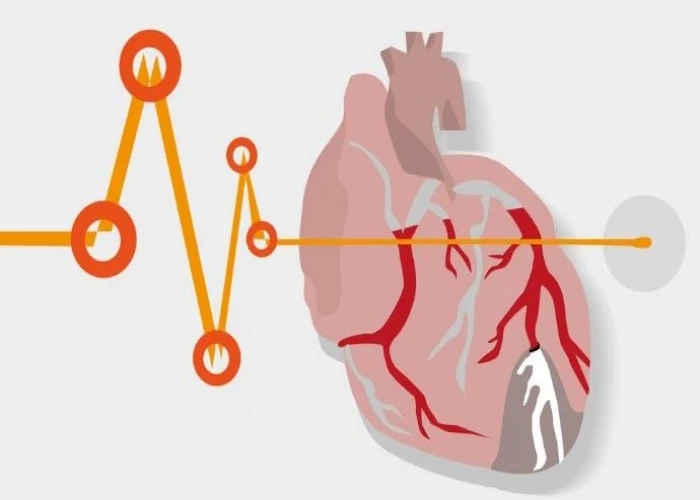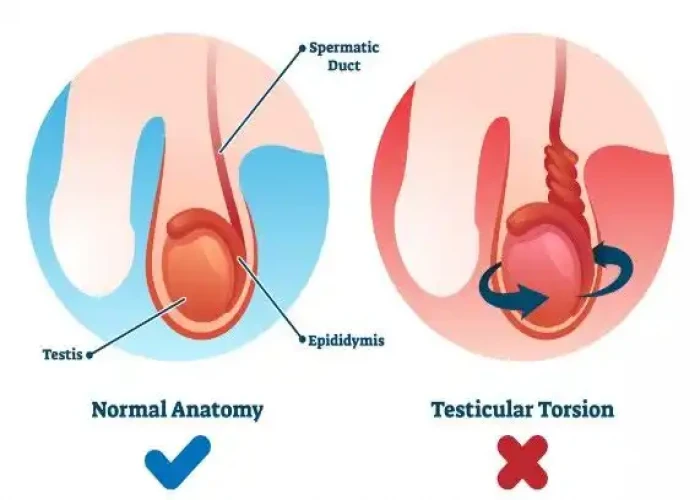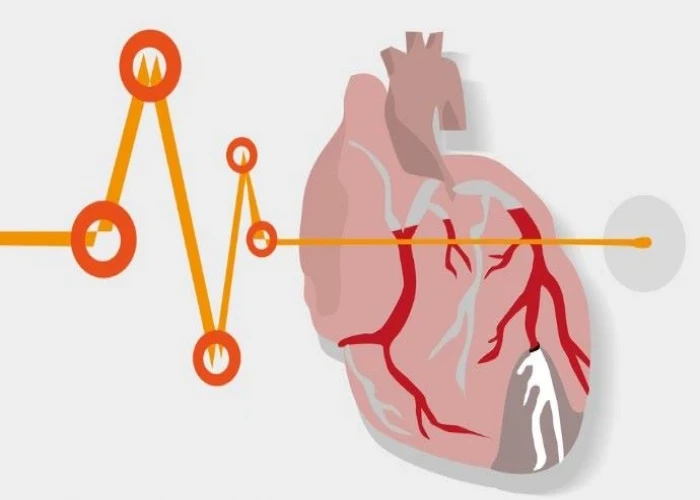 Welcome
Welcome
“May all be happy, may all be healed, may all be at peace and may no one ever suffer."
Myocardial ischemia

Myocardial ischemia refers to a condition in which the blood flow to the heart muscle is reduced, usually due to a narrowing or blockage in one or more of the coronary arteries that supply oxygen and nutrients to the heart. This can lead to damage or death of the heart muscle cells.
The most common cause of myocardial ischemia is coronary artery disease, which occurs when plaque builds up in the arteries that supply blood to the heart. Other causes may include blood clots, spasm of the coronary arteries, or a decrease in the amount of oxygen in the blood.
Symptoms of myocardial ischemia may include chest pain or discomfort (angina), shortness of breath, nausea, sweating, lightheadedness, or fatigue. In some cases, myocardial ischemia may not cause any symptoms at all, particularly in people with diabetes or older adults.
Treatment options for myocardial ischemia depend on the severity of the condition and may include lifestyle changes (such as quitting smoking, exercising regularly, and eating a healthy diet), medications (such as aspirin, beta-blockers, or nitroglycerin), and medical procedures (such as angioplasty or coronary artery bypass surgery) to restore blood flow to the heart.
Research Papers
Disease Signs and Symptoms
- Neck pain
- Jaw pain
- Shoulder pain
- Rapid heartbeat (tachycardia)
- Shortness of breath (dyspnea)
- Nausea or vomiting
- Excessive sweat
- Fatigue (Tiredness)
- Shortness of breath when being physically active
Disease Causes
Myocardial ischemia
Myocardial ischemia occurs when the blood flow through one or more of your coronary arteries is decreased. The low blood flow decreases the amount of oxygen your heart muscle receives.
Myocardial ischemia can develop slowly as arteries become blocked over time. Or it can occur quickly when an artery becomes blocked suddenly.
Conditions that can cause myocardial ischemia include:
- Coronary artery disease (atherosclerosis). Plaques made up mostly of cholesterol build up on your artery walls and restrict blood flow. Atherosclerosis is the most common cause of myocardial ischemia.
- Blood clot. The plaques that develop in atherosclerosis can rupture, causing a blood clot. The clot might block an artery and lead to sudden, severe myocardial ischemia, resulting in a heart attack. Rarely, a blood clot might travel to the coronary artery from elsewhere in the body.
- Coronary artery spasm. This temporary tightening of the muscles in the artery wall can briefly decrease or even prevent blood flow to part of the heart muscle. Coronary artery spasm is an uncommon cause of myocardial ischemia.
Chest pain associated with myocardial ischemia can be triggered by:
- Physical exertion
- Emotional stress
- Cold temperatures
- Cocaine use
- Eating a heavy or large meal
- Sexual intercourse
Disease Prevents
Myocardial ischemia
The same lifestyle habits that can help treat myocardial ischemia can also help prevent it from developing in the first place. Leading a heart-healthy lifestyle can help keep your arteries strong, elastic and smooth, and allow for maximum blood flow.
Disease Treatments
The goal of myocardial ischemia treatment is to improve blood flow to the heart muscle. Depending on the severity of your condition, your doctor may recommend medications, surgery or both.
Medications
Medications to treat myocardial ischemia include:
- Aspirin. A daily aspirin or other blood thinner can reduce your risk of blood clots, which might help prevent blockage of your coronary arteries. Ask your doctor before starting to take aspirin because it might not be appropriate if you have a bleeding disorder or if you're already taking another blood thinner.
- Nitrates. These medications widen arteries, improving blood flow to and from your heart. Better blood flow means your heart doesn't have to work as hard.
- Beta blockers. These medications help relax your heart muscle, slow your heartbeat and decrease blood pressure so blood can flow to your heart more easily.
- Calcium channel blockers. These medications relax and widen blood vessels, increasing blood flow in your heart. Calcium channel blockers also slow your pulse and reduce the workload on your heart.
- Cholesterol-lowering medications. These medications decrease the primary material that deposits on the coronary arteries.
- Angiotensin-converting enzyme (ACE) inhibitors. These medications help relax blood vessels and lower blood pressure. Your doctor might recommend an ACE inhibitor if you have high blood pressure or diabetes in addition to myocardial ischemia. ACE inhibitors may also be used if you have heart failure or if your heart doesn't pump blood effectively.
- Ranolazine (Ranexa). This medication helps relax your coronary arteries to ease angina. Ranolazine may be prescribed with other angina medications, such as calcium channel blockers, beta blockers or nitrates.
Procedures to improve blood flow
Sometimes, more-aggressive treatment is needed to improve blood flow. Procedures that may help include:
- Angioplasty and stenting. A long, thin tube (catheter) is inserted into the narrowed part of your artery. A wire with a tiny balloon is threaded into the narrowed area and inflated to widen the artery. A small wire mesh coil (stent) is usually inserted to keep the artery open.
- Coronary artery bypass surgery. A surgeon uses a vessel from another part of your body to create a graft that allows blood to flow around the blocked or narrowed coronary artery. This type of open-heart surgery is usually used only for people who have several narrowed coronary arteries.
- Enhanced external counterpulsation. This noninvasive outpatient treatment might be recommended if other treatments haven't worked. Cuffs that have been wrapped around your legs are gently inflated with air then deflated. The resulting pressure on your blood vessels can improve blood flow to the heart.
Disease Diagnoses
Disease Allopathic Generics
Disease Ayurvedic Generics
Disease Homeopathic Generics
-
Coca
30, 200 strength.
-
Digitalis purpurea
6, 30 strength.
-
Cactus grandiflorus
Q, 3X strength.
-
Moschus
6, 30 strength.
-
Cannabis indica
6, 30 strength.
-
Asafoetida
6, 30 strength.
-
Acid oxalic
6, 30 strength.
-
Aurum metalicum
6 strength.
-
Arnica montana
6, 30 strength.
-
Aconite napellus
1X strength.
-
Crataegus oxyacantha
Q strength.
-
Acid phosphoricum
Q strength.
-
Aconite ferox
30, 200 strength.
Disease yoga
Myocardial ischemia and Learn More about Diseases

Scarlet fever

Hyperhidrosis

Kyphosis

Testicular torsion

Pediatric brain tumors

Depersonalization-derealization disorder

Interstitial cystitis

Asthma attack
myocardial ischemia, মায়োকার্ডিয়াল ইস্কেমিয়া
To be happy, beautiful, healthy, wealthy, hale and long-lived stay with DM3S.
